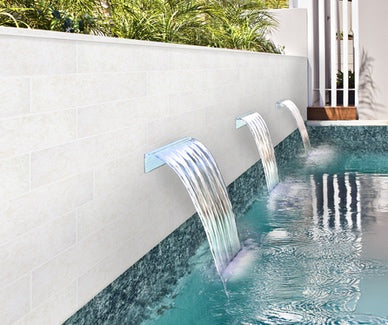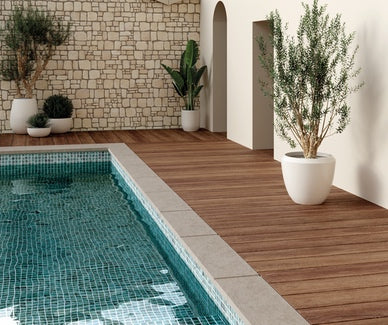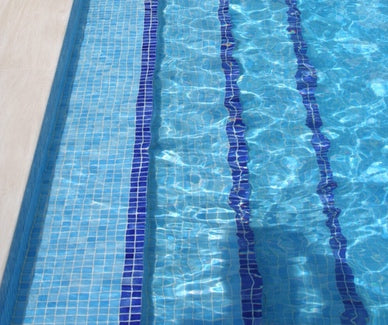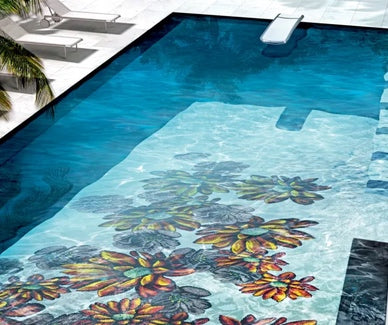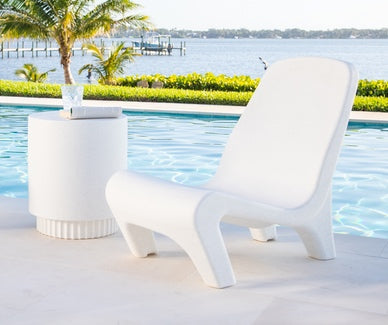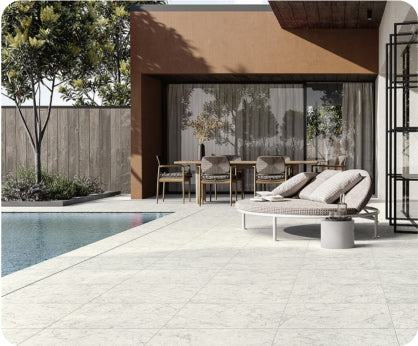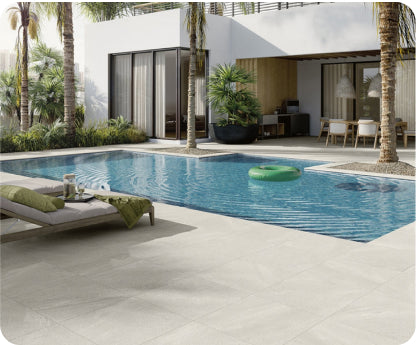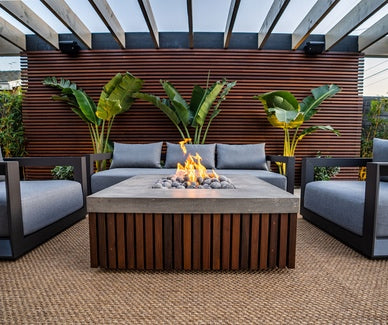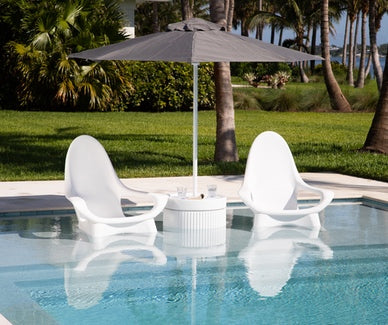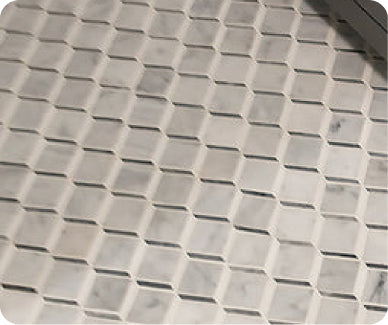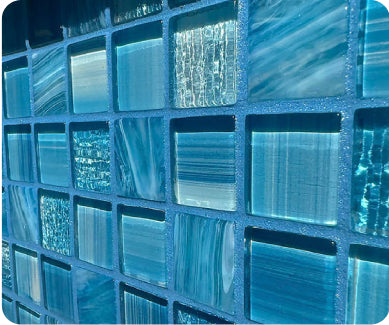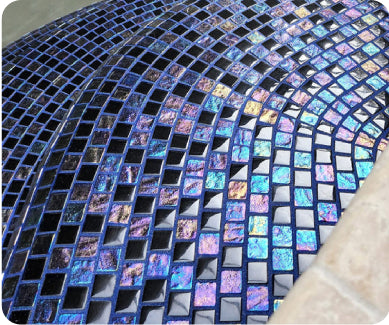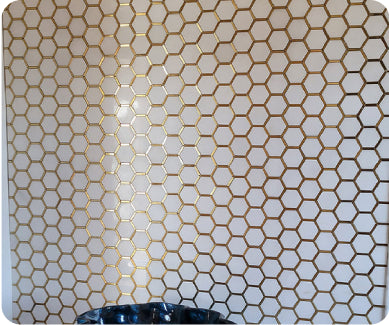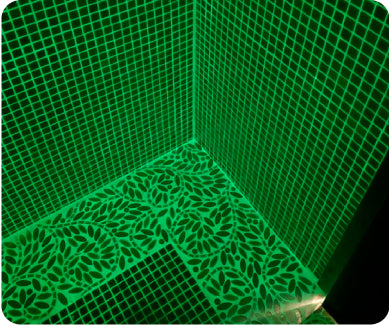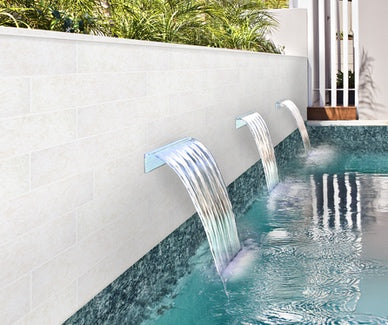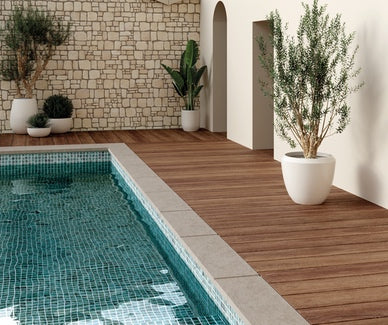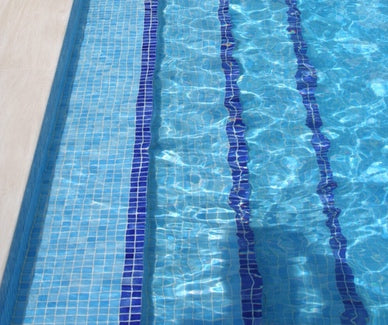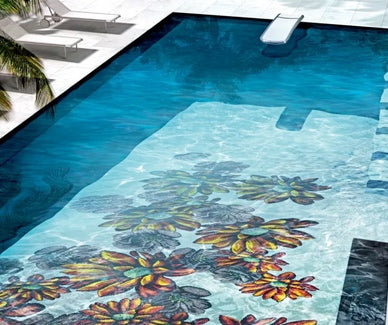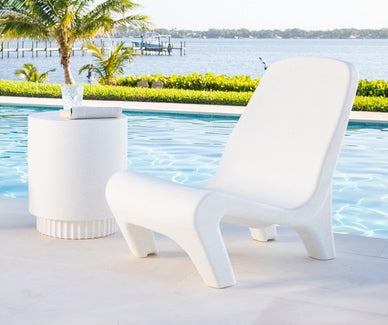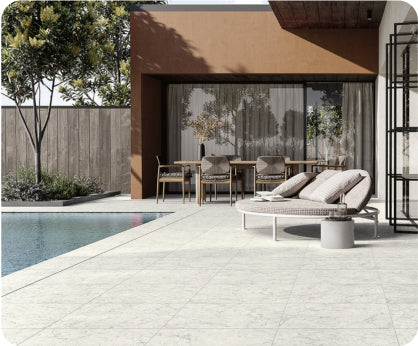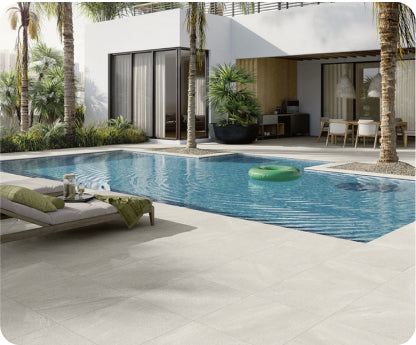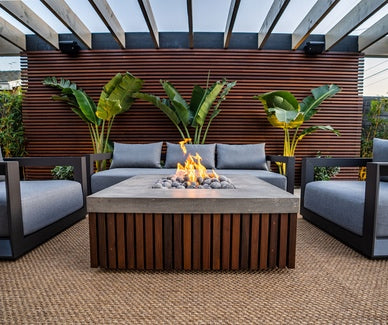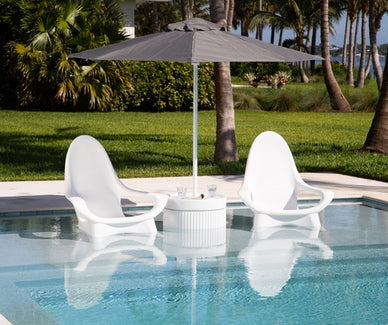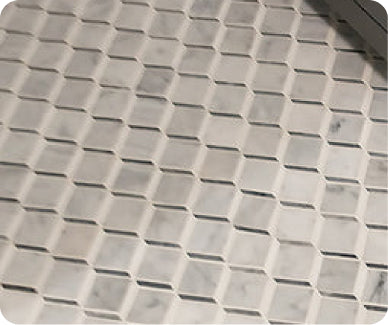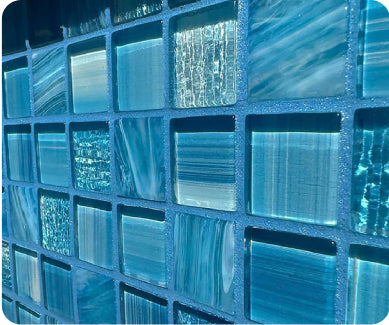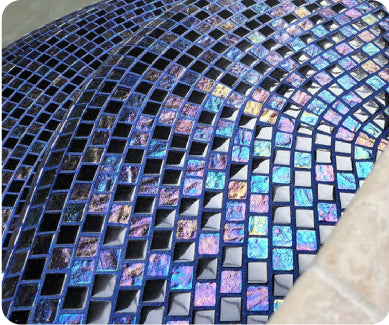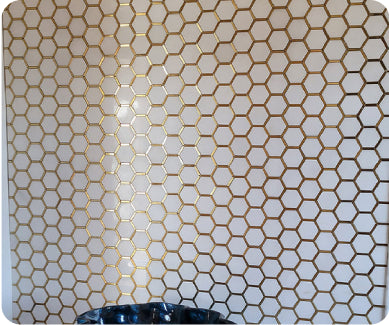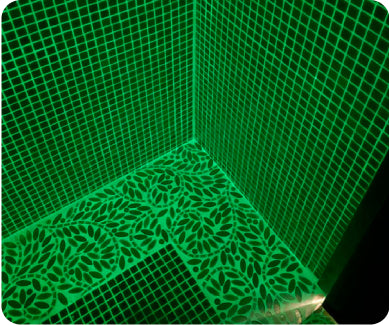Beneath the Surface: Glass vs Porcelain Tile
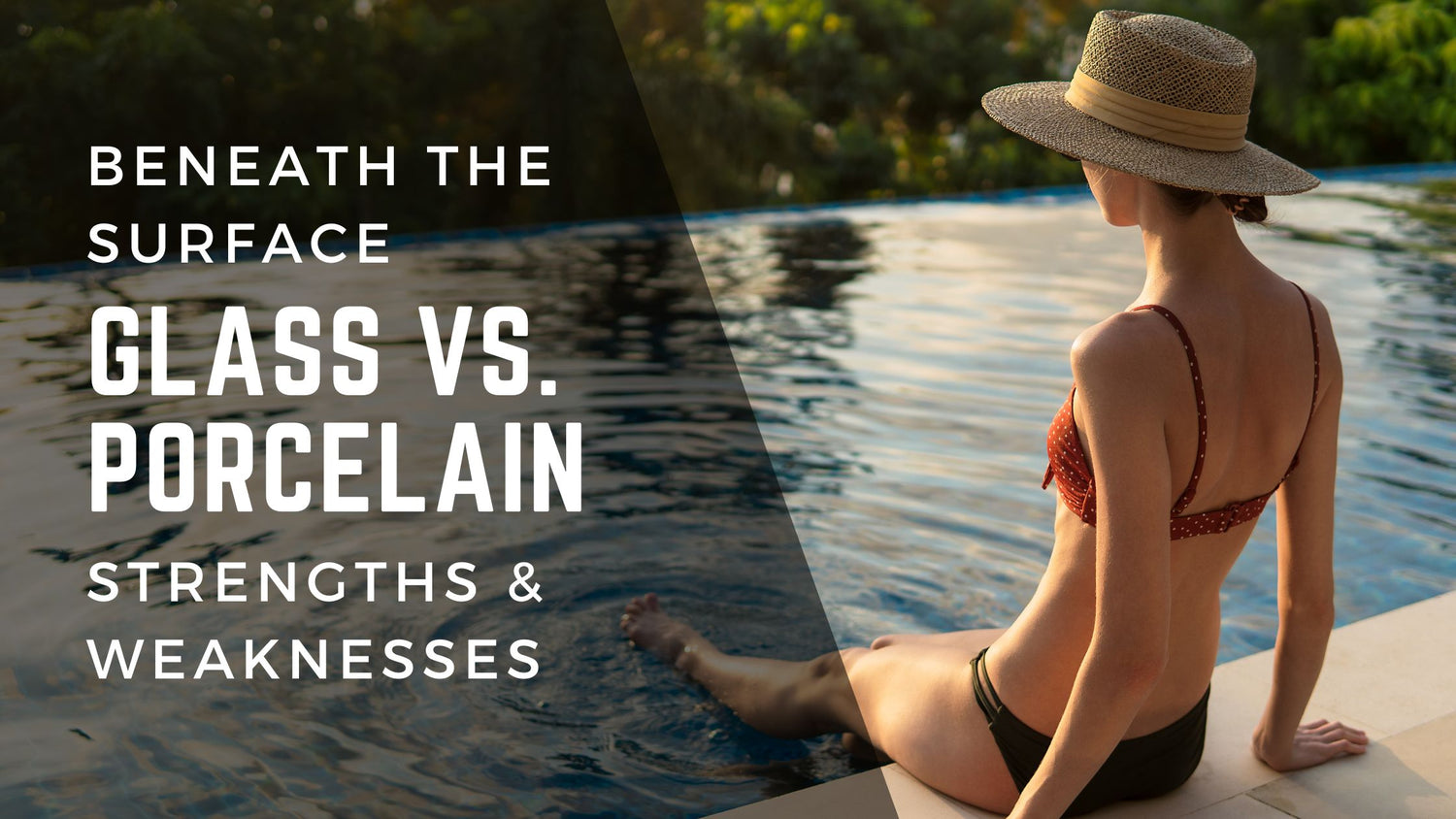
When it comes to choosing tile for your home, the debate between glass and porcelain is a common one. Both glass and porcelain tiles offer unique benefits and drawbacks, making the decision between the two a matter of personal preference and project needs. As someone who has worked with both materials extensively, I'm here to share my insights on the key differences between glass and porcelain tile to help you make an informed decision.
Whether you're renovating your bathroom, updating your kitchen backsplash, or designing a custom pool, understanding the pros and cons of glass vs porcelain tile is crucial. In this comprehensive guide, we'll dive deep into the pros and cons of each material, empowering you to choose the best tile for your project.
Table Of Contents:
- Characteristics of Glass Tile
- Characteristics of Porcelain Tile
- Durability Comparison
- Design Options and Aesthetics
- Cost Considerations
- The Final Cut: Choosing the Right Tile for Your Space
Characteristics of Glass Tile
Glass tiles are known for their stunning visual appeal and versatility. Often made from recycled glass, these tiles offer a surface that reflects light, creating a dazzling effect in any space. The depth and dimension achieved with glass tiles are unmatched, making them a popular choice for swimming pools, spas, backsplashes, and pool mosaics.

One of the most significant advantages of glass mosaic tiles is their resistance to staining and fading. Unlike some other materials, the color of glass tiles goes all the way through, ensuring long-lasting beauty. Glass is also non-porous, making it inherently resistant to mold, mildew, and bacteria growth - a crucial factor in wet areas like bathrooms and pools.
Glass has afforded manufacturers the opportunity for true innovation. For instance, Vidrepur, a world-renowned glass tile producer, has developed new, self-cleaning glass tiles. Using their Technoclean technology, a self-cleaning nano-coating that's applied to the surface of the tiles, they've created an anti-viral, dust and mold-resistant, self-deodorizing glass tile. Check out the Nature collection that boasts this remarkable technology.
Characteristics of Porcelain Tile
Porcelain tiles, on the other hand, are known for their durability and versatility. Made from dense clay and minerals fired at high temperatures, porcelain tiles are harder and less porous than ceramic tiles. This makes them highly resistant to scratches, chips, and stains; the ideal choice for high-traffic areas like pools and outdoor spaces.
One of the key benefits of porcelain tiles is their ability to mimic the look of natural materials like wood, stone, and marble. With advanced printing technology, porcelain tiles can be designed to closely resemble these materials while offering superior durability and easier maintenance. This versatility in design options makes porcelain a popular choice for flooring, countertops, and exterior cladding.

Durability Comparison
When it comes to durability, both glass and porcelain tiles have their strengths. Glass tiles are incredibly resilient to water, chemicals, and UV rays, making them an excellent choice for outdoor pools and wet areas. Glass pool tiles are also frost proof, making them safe for outdoor use in colder climates. However, glass tiles can be more prone to cracking or chipping if heavy objects are dropped on them.

Porcelain tiles, being denser and harder, are more resistant to cracks, chips, and heavy impacts. This durability is why porcelain tiles have been a staple for homes and pools for many years. Compared to glass, porcelain tiles are easier to install, however, we still recommend hiring a licensed tile professional to do the work.

Factor |
Glass Tile |
Porcelain Tile |
|---|---|---|
| Water Resistance | Excellent | Very Good |
| Scratch Resistance | Good | Excellent |
| Impact Resistance | Fair | Excellent |
| Stain Resistance | Excellent | Very Good |
| UV Resistance | Excellent | Very Good |
Design Options and Aesthetics
When it comes to design options and aesthetics, glass and porcelain tiles each have their unique advantages. Glass tiles offer a luminous, reflective quality that can make a space feel brighter and more open. The translucent nature of glass allows for a depth of color and pattern that is difficult to achieve with other materials. The Azure 1"x1" glass tile is a popular option. It blends the reflectivity of translucent tile and the shimmer of an iridescent finish into a beautiful mix that will captivate the senses.

Porcelain tiles, while not as reflective as glass, offer a wide range of design possibilities. With the ability to mimic natural materials and print detailed patterns, porcelain tiles can create convincing wood, stone, or fabric looks. This versatility makes porcelain a popular choice for those seeking a specific design aesthetic without compromising on durability. Check out the Aria Bianco 12"x24" porcelain tile, a favorite among homeowners and designers alike!

Another popular porcelain tile trend is patterned tile. These tiles offer a wide range of styles to cater to diverse tastes and design requirements. From traditional to modern, rustic to art deco, the options are endless.
Traditional tiles feature intricate designs inspired by historical and cultural motifs, while modern and geometric tiles boast clean lines, bold shapes, and abstract forms. Rustic tiles emulate natural materials, while art deco-inspired tiles showcase bold colors and luxurious patterns. Whatever your style, there's a patterned porcelain tile to match.

Cost Considerations
Cost is often a significant factor when choosing between glass and porcelain tiles. Generally, glass tiles tend to be more expensive than porcelain, both in terms of material cost and installation. The higher price point of glass tiles can be attributed to the specialized manufacturing process and the need for skilled installation. That said, the demand for glass tile in recent years has increased tremendously compared to years past. It's because of this that many brands are offering top-quality glass tiles at more affordable prices.

Porcelain tiles, while not the cheapest option, are typically more affordable than glass tiles. However, the cost of porcelain tiles can vary widely depending on the quality, design, and brand. It's important to consider the long-term value and durability of porcelain when comparing costs, as it can often outlast cheaper alternatives.

In the end, the costs for either material can vary and are generally in the same ballpark. Our advice is to consider what's important to you. Picking tile for any part of your home is an investment. You probably won't be updating that space again for many years. If you have your heart set on a tile but choose to go with a cheaper option due to budget restraints, you may end up regretting it for a very long time. Instead of enjoying your space, you may see it as a reminder of what could have been. If you're able to adjust your budget to buy your dream tile, do it. You'll thank yourself later!
There are many pros and cons when it comes to glass and porcelain tiles. Both offer a wide range of style options and offer unique benefits when used for different applications. Glass excels when used in pools, spas, and other wet areas. Its reflective nature catches sunlight in a way that no other material can. Porcelain tile is ideal for floors and other heavy-traffic areas thanks to its long-lasting durability. Whatever type of tile you're looking for, there's sure to be something in glass or porcelain to complete your space.
The Final Cut: Choosing the Right Tile for Your Space
Choosing between glass and porcelain tile ultimately comes down to your specific project requirements, design preferences, and budget. Glass tiles offer a stunning, reflective beauty that can transform any space, while porcelain tiles provide exceptional durability and versatility in design. By understanding the key differences between glass vs porcelain tile, you can make an informed decision that will result in a beautiful, long-lasting installation.
Whether you opt for the luminous allure of glass or the hardwearing practicality of porcelain, both materials have the potential to elevate your home's style and functionality. As you embark on your tiling project, remember to consider factors such as durability, maintenance, and cost to ensure you select the best tile for your needs.
As always, don't hesitate to contact us at (800) 971-1442 for help finding your dream tile and Bring Paradise Home today.

